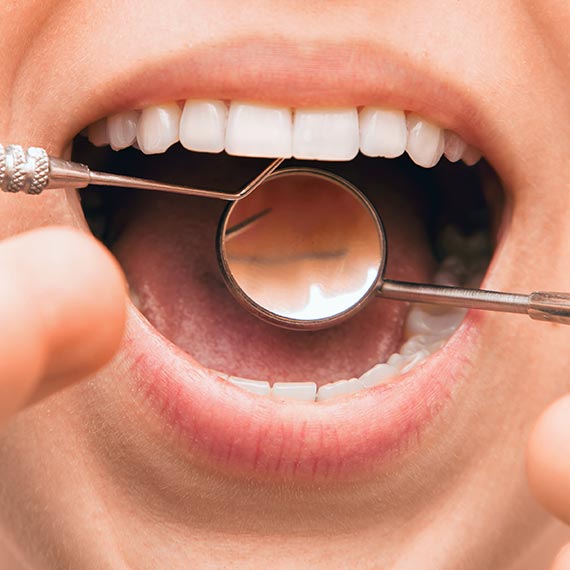Periodontics
Periodontics is a specialty of dentistry focused on diagnosing, treating, and preventing diseases of the supporting structures of the teeth. Although it’s mainly concerned with preventing the progress of gum disease, periodontics also involves correcting uneven or receding gums and placing and caring for dental implants. If you’re worried about gum disease book your periodontics treatment with us at Victoria Road Dental Practice in Exmouth.
Gum disease is a very common condition caused by the bacteria in plaque (the sticky film that builds up on your teeth if you don’t brush them regularly). Plaque can build up over time and eventually harden and become tartar. This is what causes the inflammation and bleeding that is known as gingivitis – the early, reversible stage of gum disease.
However, if gingivitis is left untreated, it can develop into periodontitis. This is an irreversible stage of gum disease that can only be managed rather than cured, and which affects around 10-15% of the population. Periodontitis can cause pockets to develop between the root of the tooth and the gum, which may mean you lose your tooth.
Symptoms of gum disease
Signs that you may be developing gum disease include:
- Bleeding gums when you brush your teeth
- Swollen, red gums
- Bad breath or a metallic taste in your mouth
- Receding gums
- Sensitive teeth
To pick up gum disease early, before it develops into something more serious, make sure you have regular check-ups with your dentist and hygienist.
Periodontics treatment
How your dentist treats your gum disease will depend on how serious it is. However, the treatment will include advice on how to control the build-up of plaque and the most effective techniques for keeping your teeth clean.
If your gum disease has developed beyond the early stages, the dentist will thoroughly clean under your gums. This is known as root surface debridement and helps to remove the hidden build-up of bacteria. If the build-up of bacteria is deep inside the pocket of your gum the dentist can remove this surgically, under local anaesthetic.
What causes gum disease?
The most common cause of gum disease is poor oral hygiene. Other risk factors include smoking, diabetes, poor diet, certain medicines and genetic predisposition. Prevention and early diagnosis are the best ways in which you can reduce your chances of developing the disease.
It’s worth taking care of your teeth and gums as a healthy mouth benefits your whole body. For example, poor oral hygiene has been linked to an increased risk of developing certain health conditions, such as heart disease.
Book your periodontics treatment online here or call us on 01395 272 018.




